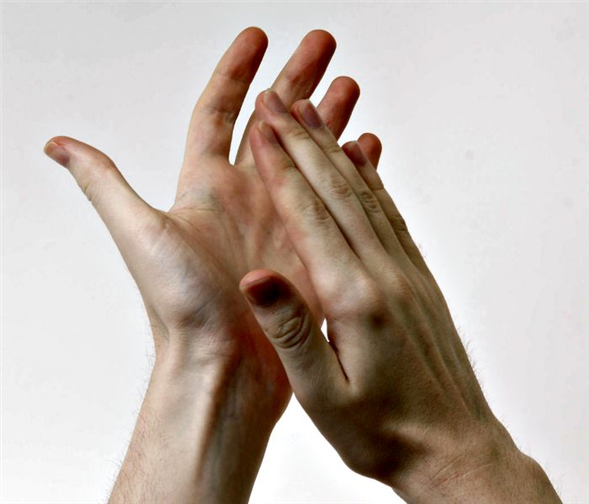Translate Page

We've all heard the Zen koan about the sound of one hand clapping. But what happens when you're the one audience member clapping -- or at least the only one cheering? It's a pretty lonely experience, and it happened to me when I saw David Hirson's short-lived theatre satire Wrong Mountain, which lasted all of 19 previews and 28 performances on Broadway in 2000.
A biting comedy about a pretentious poet with a particular disdain for theatre (played with palpable venom by Ron Rifkin) who enters and wins a playwriting contest on a bet, Wrong Mountain examined the never-ending struggle between art and entertainment. Without giving any easy answers (or heck, any answers at all), the play explored how the two are defined in the eye of the beholder, and how neither is superior to the other. As a twentysomething newish writer, I found it to be heady stuff, and I admit I took glee in its potshots at theatre audiences like, ''They go to bask in the flattering image of themselves as people who are open enough to have their values challenged, which is just another way of saying that they go to the theatre to have their values confirmed.'' (I guess as a narcissistic youth, I thought I was somehow exempt from that criticism even though I was sitting in the house, too.)
I remember that my date that night, a writer about a decade my senior, was not as amused as I -- he even suggested we leave at intermission. I scoffed and refused, but I noticed some of our fellow audience members did flee and many who stayed clucked their tongues in near-constant disapproval. After the performance, as my friend and I strolled through Midtown, I couldn't stop talking about the show. I went on and on and on about how brilliant and thought-provoking it was, how much I enjoyed its symbolism (spoiler alert: toward the end, as the poet's unexpected theatrical success eats away at his soul, he develops a massive intestinal worm!), and how I knew it would close because people "just won't get it." Though he looked grumpy, he let me rhapsodize until we reached his apartment, but he didn't invite me up.
I've often wondered if I would find Wrong Mountain as fascinating if I watched it again today. After a decade and a half of rabid theatregoing and general living, I realize my now-fortysomething eyes might see it differently. It's probably a moot point, though, as I doubt any major revival is coming. (That said, Hirson's only other play, La Bête, which had an even briefer first run than Wrong Mountain, got a star-studded Broadway revival a few seasons back, so who knows?).
Even if I did somehow manage to see it a second time, I could never repeat that sensation of being the only one enthralled in a theatre full of haters. It was such a solitary and sad and confusing feeling, like being the last kid left on the bench in elementary school because no one wants you on their team. I also felt a bit like a conspiracy nut: only I could see how great the show was. Everyone else was blind!
I went home that night knowing there was no one I could rave to. Sure, I could argue with the few people I knew who saw the show about whether it was masterpiece or a misfire. But they would never share or understand my unabashed love. I would forever be a fan club of one.
Wrong Mountain certainly isn't the only time my opinion of a production has differed from the general consensus. I've found many a hit show overrated, and I've praised less popular fare. But Wrong Mountain was my sole experience of feeling truly alone at the theatre, even though I was in a sea of people.
Have you ever adored a show everyone else seemed to hate? Tell us about it in the comments!
Raven Snook is the associate editor of TDF Stages